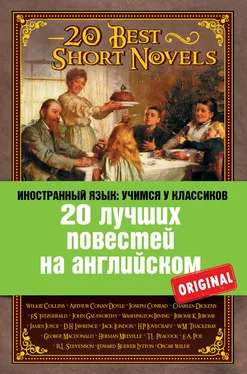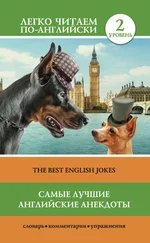cornet – a small brass musical instrument, like a trumpet
ha’penny= halfpenny
dyspeptic – adj from dispepsia – indigestion
air – melody, tune (old use)
egotistical – adj from egotist – a selfish, conceited person
perquisite – smth. looked upon as one’s right
cavendish – brick tobacco
paraphernalia – accessories, personal possessions, articles
constables – police officers
soprano – the highest voice register in music
Adam and Eve – here: an opera or some musical piece
Robert Browning(1812–1889) – a well-known English poet of the Victorian period
inch= 2.54 cm
guttapercha – material derived from the latex of certain trees in South Pacific and South America
minstrels – professional entertainers and singers of ballads in Medieval Europe
mimicry – here: change; in biology, change to get superficial resemblance with a different organism
Dublin – the capital of Ireland, located in the Dublin Bay of the Irish Sea, a major cultural, financial and commercial centre, and a chief port
tenor – a highest male vocal range
Romeo and Juliet – a play by Shakespeare and an overture by Tchaikovsky
Balbrigan – a town on the Irish Sea coast in the northern part of the county of Fingal in eastern Ireland
Monkstown – a village in County Cork in Ireland; the name derives from a monastic site
The Daily Express – a British morning newspaper published in London, founded in 1900
Briton – one of the Brittons, a people of Celtic origin, inhabiting the British Isles before the Anglo-Saxon invasion
Connacht – one of the five ancient kingdoms of Ireland in the western and northwestern part of the island
Glasgow – a large city on the banks of the River Clyde in west-central Scotland
Galway – a county on the Atlantic coast in Connacht
Wellington – Arthur Wellesley, 1st duke of Wellington (1769–1862), commander of the British Army during the Napoleonic Wars; he was of Irish origin
the Three Graces – in Greek mythology, the goddesses of Brightness, Joyfulness and Bloom
Smyrna – a Greek city (now in western Turkey), one of the oldest cities in the Mediterranean region, founded in the 3rd millennium BC
stout – a top-fermented beer
contralto – the lowest female voice in music
prima donna – a leading woman singer in opera
Dinorah – an opera by Giacomo Meyerbeer (1791–1864), a German opera composer
Lucrezia Borgia – an opera by Gaetano Donizetti (1797–1848), a famous Italian opera composer
Caruso – Enrico Caruso (1873–1921), a prominent Italian singer and musician of the early 20th century
port – strong, sweet Portuguese wine
sherry – fortified wine, usually of Spain, Cypress, etc.
Trinity College – the University of Dublin founded in 1592, the oldest university in Ireland; the two names are interchangeable
terra-cotta – 1. fired clay (from Italian ‘baked earth’); 2. an object made from coarse, porous clay
heliotrope – dark-green mineral with bright-red spots
shilling – a former British coin, 1/20 of a pound or 12 pence
the Bog of Allen – a group of peat bogs in east-central Ireland between the Liffey and the Shannon Rivers
the Shannon – the longest river in Ireland; it flows south and enters the Atlantic Ocean
the Viking – also called Norseman, one of the Scandinavian warriors in the 9th-11th centuries; the Vikings raided European countries and greatly influenced the history of Europe
Hampshire – a historic county on the English Channel in south-central England
sangfroid= composure, self-control ( French )
the Saxons – a Germanic people who lived along the Baltic coast in ancient times; they invaded Britain in the 5th century AD
hamlets – small villages
yeomen – peasants or farmers who owned their land
yards – yard is a unit of length, 91.44 cm
the Morris dance – an old English ritual folk dance performed by specially chosen men
coming to grips – idiom; to come to grips = to deal with
epicurean – devoted to pleasure and enjoyment; from Epicurus (341 BC–270 BC), a Greek philosopher, the author of philosophy of pleasure and retirement
casus belli – ground for war, cause of war and justification of it ( Latin )
empyrean – heavenly, celestial
stoic – having great self-control, bearing everything without complaint
basta! – that’s enough!; no more of it! ( Spanish )
Isaac – in the Old Testament, a Hebrew patriarch, the son of Abraham; to test Abraham’s faith, God told him to sacrifice the child, but at the last moment God spared Abraham and his boy
Читать дальше
Конец ознакомительного отрывка
Купить книгу












